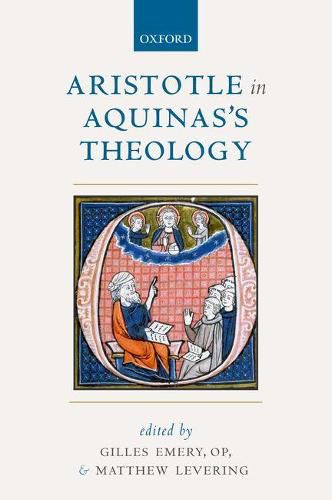Readings Newsletter
Become a Readings Member to make your shopping experience even easier.
Sign in or sign up for free!
You’re not far away from qualifying for FREE standard shipping within Australia
You’ve qualified for FREE standard shipping within Australia
The cart is loading…






This book explores the role of Aristotelian concepts, principles, and themes in Thomas Aquinas’s theology. Each of the ten essays investigates the significance of Aquinas’s theological reception of Aristotle in a central theological domain: the Trinity, the angels, soul and body, the Mosaic law, grace, charity, justice, contemplation and action, Christ, and the sacraments. In general, the essays focus on the Summa theologiae, but some range more widely in Aquinas’s corpus. Readers will become acquainted with Aquinas’s theological uses of the great Aristotelian themes, such as act and potency, God as pure act, substance and accidents, power and generation, change and motion, fourfold causality, form and matter, hylomorphic anthropology, the structure of intellection, the relationship between knowledge and will, happiness and friendship, habits and virtues, contemplation and action, politics and justice, the best form of government, and private property and the common good.
$9.00 standard shipping within Australia
FREE standard shipping within Australia for orders over $100.00
Express & International shipping calculated at checkout
This book explores the role of Aristotelian concepts, principles, and themes in Thomas Aquinas’s theology. Each of the ten essays investigates the significance of Aquinas’s theological reception of Aristotle in a central theological domain: the Trinity, the angels, soul and body, the Mosaic law, grace, charity, justice, contemplation and action, Christ, and the sacraments. In general, the essays focus on the Summa theologiae, but some range more widely in Aquinas’s corpus. Readers will become acquainted with Aquinas’s theological uses of the great Aristotelian themes, such as act and potency, God as pure act, substance and accidents, power and generation, change and motion, fourfold causality, form and matter, hylomorphic anthropology, the structure of intellection, the relationship between knowledge and will, happiness and friendship, habits and virtues, contemplation and action, politics and justice, the best form of government, and private property and the common good.